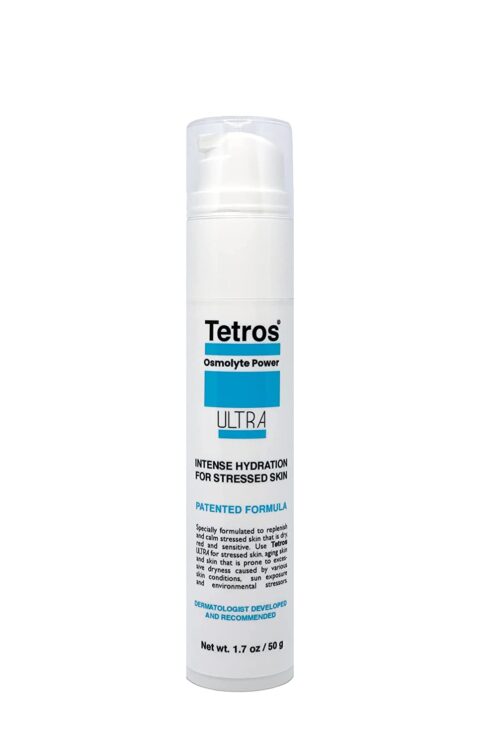As we age, we want thicker and more resilient skin because thin skin is more susceptible to damage, wrinkles, and sensitivity. It’s important to understand what causes skin thinning and what natural methods we can use to promote thicker and healthier skin.
This will not only make us look better but also improve our overall skin health. In this article, I will discuss what makes skin thin and how we can encourage thicker and stronger skin.
What Factor Causes Our Skin To Become Thin?
Skin thinning, or the loss of the dermis or subcutaneous fat layer, can be caused by several factors:
- Aging: As we age, our skin naturally loses collagen and elastin, proteins that provide skin thickness and elasticity. In addition, as we get older, our skin loses its ability to retain moisture and becomes progressively drier and less plump.
- Sun Exposure: Sun exposure can degrade collagen and speed up the aging process, resulting in thinner skin and the potential development of freckles.
- Lifestyle Factors: Poor diet, smoking, and lack of exercise can adversely affect skin health and thickness.
- Genetics: Some people have naturally thinner skin due to their genetics.
- Hormonal Changes: Changes in hormone levels, especially during menopause, can decrease skin thickness and elasticity.
Natural Ways To Make Your Skin Thick
Here are some ways to help increase skin thickness and improve its overall health:
Boost Your Collagen
Collagen is an important protein that helps maintain the skin’s thickness and structure. You can increase your collagen levels by eating foods rich in antioxidants, especially vitamin C, such as oranges, strawberries, and peppers. Studies have shown that these foods can help improve skin elasticity and hydration by helping to protect collagen from damage and support its production.
Hydrate And Moisturize
One way to achieve thick skin is by drinking enough water throughout the day to hydrate your body. Additionally, you can use Tetros® ULTRA cream, which is a potent moisturizer enriched with taurine that helps to draw moisture into your skin, making it appear plumper and thicker. These two methods have been proven effective in maintaining your skin’s hydration.
Protection Against Sun Damage
Protecting your skin from the sun is essential to help prevent collagen breakdown. Routinely using broad-spectrum sunscreen with at least SPF 30 and wearing protective clothing like hats, long-sleeved shirts, and sunglasses can effectively shield your skin from harmful UV rays.
Incorporate Healthy Fats In Your Diet
Healthy fats are needed to make skin thicker. Eating foods rich in omega-3 fatty acids, such as avocado, almond oil, salmon, flaxseeds, and walnuts, can help strengthen the skin’s protective barrier, making it thicker and healthier. Some of these are discussed in more detail below.
Aloe Vera Gel
Aloe vera is a great option for thickening skin naturally and improving overall firmness. It contains important nutrients that help keep the skin healthy. Its malic acid may help boost collagen production, making the skin more elastic and firmer. Aloe vera also contains vitamins E, C, and beta-carotene, which are good for anti-aging.
Coconut Oil
Coconut oil applied topically is a highly moisturizing agent rich in fatty acids that contribute some of the elements required to strengthen the skin’s lipid barrier. This natural oil also contains antioxidants such as vitamins E and A, which help reduce the damage by free radicals and the sun. The hydrating properties of coconut oil can prevent dryness and flaking, promote resilience, and enhance skin texture, making the skin appear smoother and noticeably thicker.
Almond Oil
Almond oil is rich in vitamin E, fatty acids, and proteins that help to nourish and protect the skin against oxidative stress and UV radiation damage. Its emollient properties help to rejuvenate the skin and enhance its elasticity, making it look thicker and tauter. Regular application of almond oil can also improve the complexion and skin tone due to its vitamin E content, which is known for its role in repairing skin tissue.
Shea Butter
Shea butter is rich in vitamins A and E that provide relief from dryness, deeply moisturize, and help in natural collagen production. It has exceptional healing properties for skin conditions like blemishes, under-eye wrinkles, and eczema, making it excellent for improving skin thickness and elasticity. The fatty content of shea butter nourishes the skin, restores its natural oils, and contributes to a thicker, more supple texture.
Avocado
Eating avocados is also good for the skin, as they contain vitamins A,D, and E along with healthy fats,
which are important for maintaining the skin’s function and integrity. The high content of oleic acid and other monounsaturated fats may also help to maintain moisture in the epidermal layer of the skin, keeping it soft and plump.
Green Tea
Green tea is well-known for its strong antioxidant properties, which are mainly due to its high concentration of catechins. These antioxidants protect the skin from the adverse effects of pollution and UV radiation, which damage collagen and make the skin thinner. Regular consumption of green tea or its extracts can help improve skin elasticity and thickness by supporting collagen maintenance.
Exfoliate Regularly
Removing dead skin cells through regular exfoliation promotes cell turnover, encouraging the growth of healthier, thicker skin. Use gentle exfoliants like alpha hydroxy acids (AHAs) or beta hydroxy acids (BHAs).
Exercise Regularly
When you exercise regularly, you help improve blood flow, which is important for keeping your skin cells healthy and nourished. Additionally, regular exercise is beneficial to reduce stress, which can negatively impact your skin’s health. Remember, taking care of your body through physical activity can positively affect your overall well-being.
Avoid Smoking And Limit Alcohol Consumption
Smoking generates free radicals that accelerate the breakdown of collagen. Excessive alcohol dehydrates your skin, making it thinner and less elastic.
Conclusion
While genetics and natural aging processes play a significant role in skin thickness, adopting a lifestyle that includes protective measures, nutritious eating, and proper skin care can enhance your skin’s thickness and resilience. Starting these habits early can provide long-term benefits, ensuring your skin stays healthier and more robust as you age.
Frequently Asked Questions
Can Diet Influence Skin Thickness?
Yes, a diet rich in vitamins, minerals, and antioxidants can greatly influence skin health. Foods high in Vitamin C and Omega-3 fatty acids can help to increase skin thickness and elasticity.
How Often Should I Exfoliate My Skin To Help It Become Thicker?
It’s important to exfoliate your skin regularly. Over Exfoliating can damage the skin barrier and cause thinning. It’s crucial to balance the frequency based on your skin type and sensitivity.











Leave A Comment